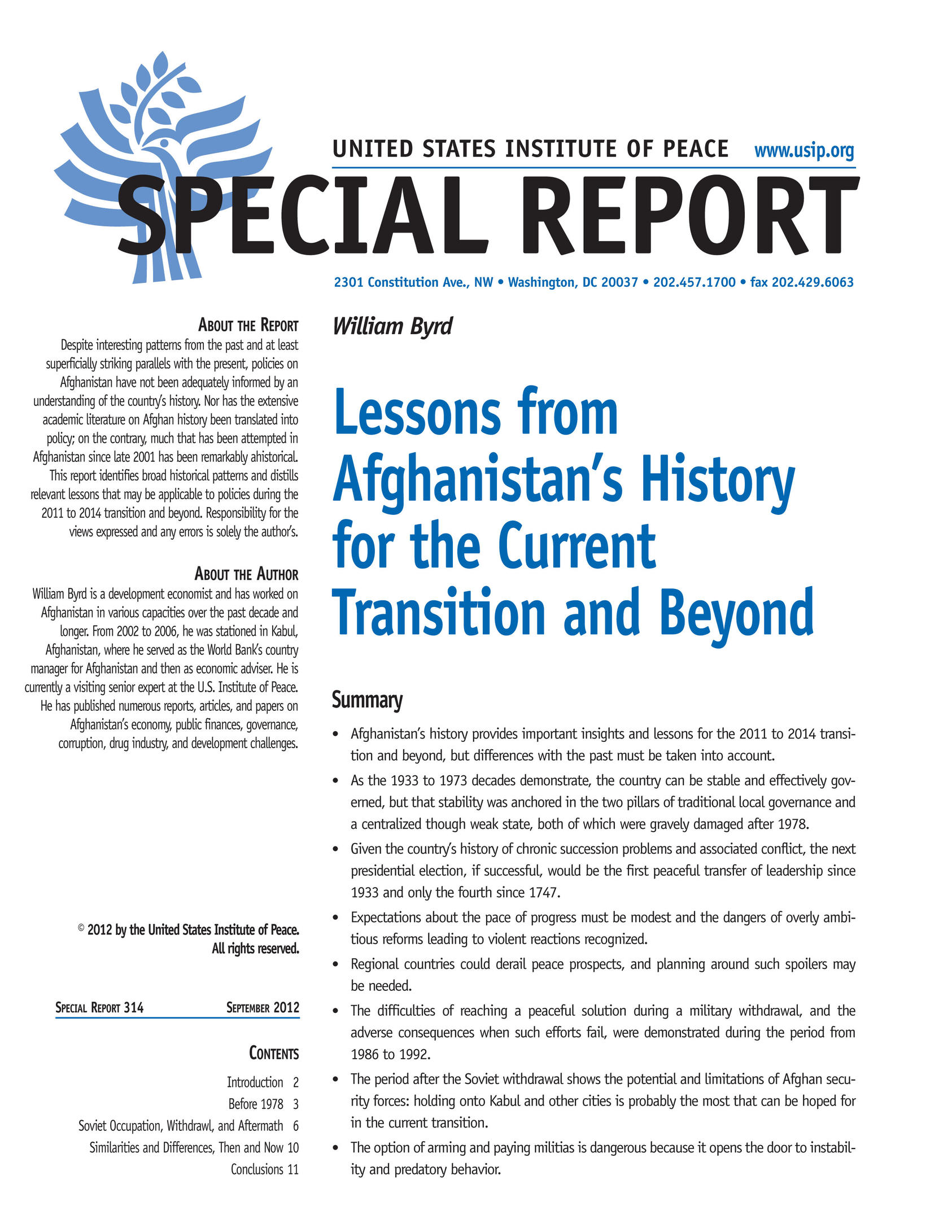Contrary to some views, Afghanistan has been and can be governed effectively and be politically stable. But history indicates that overly ambitious and rushed modernization efforts are likely to face sharp domestic reactions that can set development back, sometimes for decades.

Summary
- Afghanistan’s history provides important insights and lessons for the 2011 to 2014 transition and beyond, but differences with the past must be taken into account.
- As the 1933 to 1973 decades demonstrate, the country can be stable and effectively governed, but that stability was anchored in the two pillars of traditional local governance and a centralized though weak state, both of which were gravely damaged after 1978.
- Given the country’s history of chronic succession problems and associated conflict, the next presidential election, if successful, would be the first peaceful transfer of leadership since 1933 and only the fourth since 1747.
- Expectations about the pace of progress must be modest and the dangers of overly ambitious reforms leading to violent reactions recognized.
- Regional countries could derail peace prospects, and planning around such spoilers may be needed.
- The difficulties of reaching a peaceful solution during a military withdrawal, and the adverse consequences when such efforts fail, were demonstrated during the period from 1986 to 1992.
- The period after the Soviet withdrawal shows the potential and limitations of Afghan security forces: holding onto Kabul and other cities is probably the most that can be hoped for in the current transition.
- The option of arming and paying militias is dangerous because it opens the door to instability and predatory behavior.
About the Report
Despite interesting patterns from the past and at least superficially striking parallels with the present, policies on Afghanistan have not been adequately informed by an understanding of the country’s history. Nor has the extensive academic literature on Afghan history been translated into policy; on the contrary, much that has been attempted in Afghanistan since late 2001 has been remarkably ahistorical. This report identifies broad historical patterns and distills relevant lessons that may be applicable to policies during the 2011 to 2014 transition and beyond. Responsibility for the views expressed and any errors is solely the author’s.
About the Author
William Byrd is a development economist and has worked on Afghanistan in various capacities over the past decade and longer. From 2002 to 2006, he was stationed in Kabul, Afghanistan, where he served as the World Bank’s country manager for Afghanistan and then as economic adviser. He is currently a visiting senior expert at the U.S. Institute of Peace. He has published numerous reports, articles, and papers on Afghanistan’s economy, public finances, governance, corruption, drug industry, and development challenges.